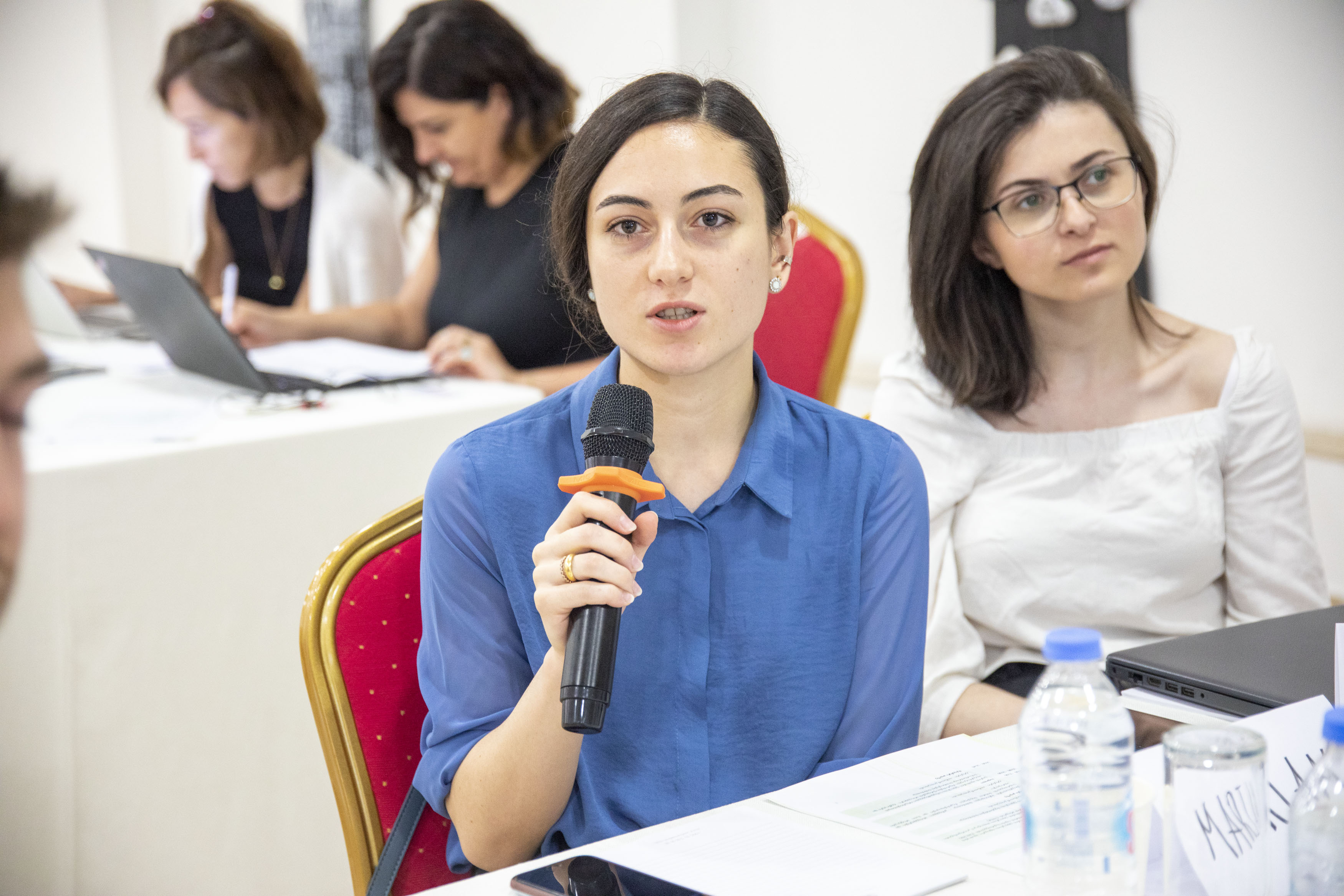EU and UN support human rights training for public servants, civic activists and journalists
From Passivism to Activism: Learning human rights to make a difference
August 2, 2022

Human rights and liberties are safeguarded by Georgia’s Constitution, policy documents and international commitments, undertaken under the UN conventions and treaties. However, Georgia is still on the way to ensuring meaningful human rights protection for all citizens, especially for the vulnerable and marginalised groups.
Recent research shows that Georgian people pay greater attention to human rights and expect more proactive steps from the authorities to safeguard the rights of all citizens. Two out of five respondents (38.6 percent) believe that the state does not respond adequately to the acts of violence and discrimination against LGBTQI+ people (Source: WISG/SIDA/UNW/UNDP/UNFPA. 2022. ‘From Prejudice to Equality: Study on Public Knowledge, Awareness and Attitudes towards LGBT(Q)I Community and Legal Equality’). The vast majority of the respondents think that the state should better protect the rights of people with disabilities, including greater support for inclusive education (70 percent), inclusive infrastructure (85 percent) and disability assistance (82 percent) (Source: UNDP. 2020. ‘Public attitudes towards persons with disabilities in Georgia’)
With the belief that education and awareness are critical steps toward a human rights-based society, the European Union (EU), and the United Nations (UN) work in partnership to equip Georgia’s public and civic sectors with real-world, practical insights into human rights protection.
A series of training organized in July by UNDP and the South Caucasus Field Presence of the Office of the High Commissioner for Human Rights (OHCHR), with EU support, brought together representatives of state institutions, media, professional associations and civil society. This educational initiative focused on the available tools and mechanisms to ensure respect for human rights in all areas.
On 15-16 July, the training session for journalists carried out in partnership with the Office of the State Minister for Reconciliation and Civic Equality, addressed the impact of misinformation and disinformation on protecting the rights of ethnic and national minorities. The training programme highlighted the critical role of the media in combating hate speech and fake news and providing the public with reliable and trustworthy information.
On 17-18 July, lawyers from the Legal Aid Service and the Georgian Bar Association participated in a training on the rights of people with disabilities. They discussed international standards in protecting disability rights and the challenges faced by people with disabilities in Georgia in getting access to justice.
On 19-20 July, human rights activists and representatives of the organizations engaged in protecting and promoting the rights of LGBTQI+ persons learned how to prepare and submit alternative reports and communications to the UN human rights Treaty Bodies and how to use the UN human rights mechanisms for advocacy and strategic litigation.
On 28-29 July, representatives of Georgia’s Public Defender’s Office discussed how to better protect the right to health in Georgia and refreshed their knowledge of international standards in this area.
“At UNDP, we deeply believe that respect for human rights is the foundation of democracy. A democratic society is primarily assessed by how it protects the rights of minorities and not just the rights of the majority. With this in mind, we join hands with the European Union and our partners to assist journalists, lawyers, civic activists and the LGBTQI+ communities to better understand and more effectively protect human rights, ensuring that no one is left behind.”Anna Chernyshova, UNDP Deputy Resident Representative in Georgia
“Education and awareness are crucial investments in the effort to achieve a just society in which all human rights of all persons are valued, respected, and protected."Vladimir Shkolnikov, Senior Human Rights Advisor for the South Caucasus Field Presence of the UN High Commissioner for Human Rights
The European Union and the United Nations, through their ‘Human Rights for All’ programme, promote a human rights culture in Georgia and help increase public awareness of human rights values and principles. Working with a wide range of local and international partners, the EU and the UN seek to ensure that all citizens – with no exception, can enjoy the rights and freedoms safeguarded by Georgia’s Constitution and major policy documents in line with the country’s national priorities and international commitments under the Association Agreement with the European Union, the Sustainable Development Goals, and the UN human rights treaties.
Media contacts
- Sophie Tchitchinadze, UNDP, +995 599 196907, sophie.tchitchinadze@undp.org
- Teiko Kandelaki, UNDP, +995 599 103525, tinatin.kandelaki@undp.org
- Tamar Mikadze, European Union Delegation to Georgia, +995 32 2364364, tamriko.mikadze@eeas.europa.eu

 Locations
Locations



